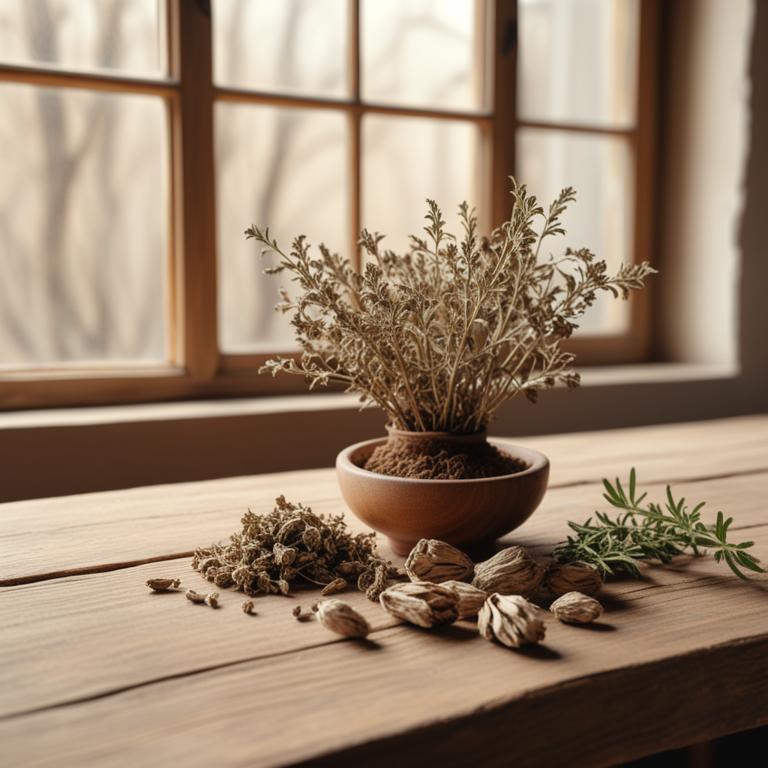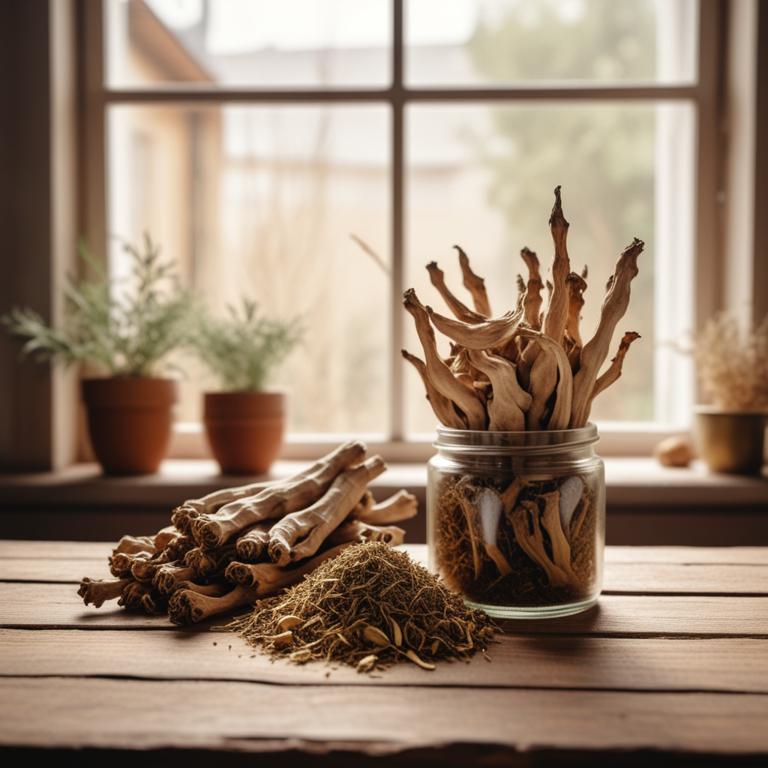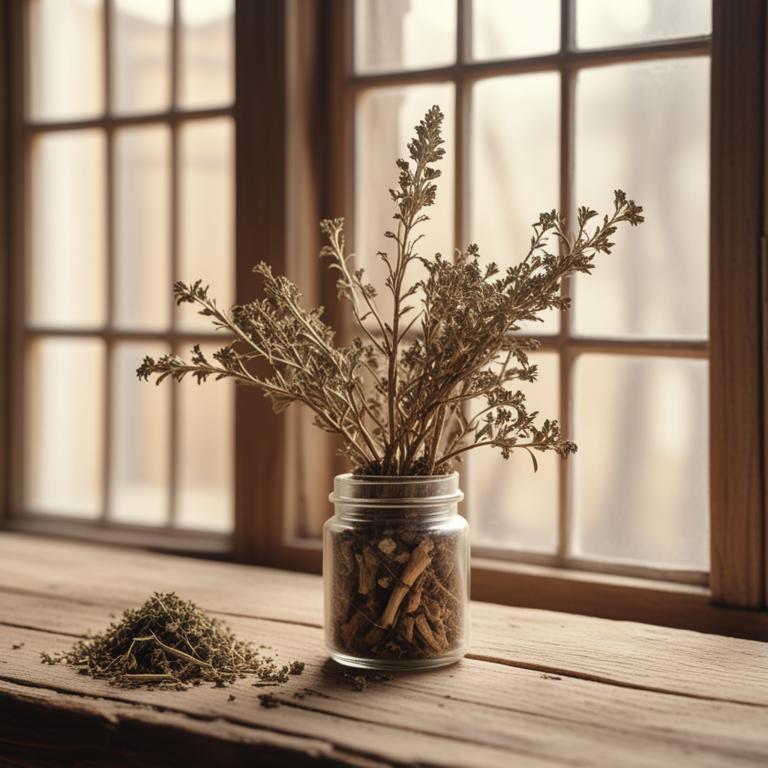Updated: Dec 1, 2024
Throat Congestion: Understanding Causes and Medicinal Herbal Solutions

Throat congestion is a common problem that makes it hard to swallow, talk, and breathe.
It's like having a stuffy pipe in your throat, blocking the airflow and making it feel swollen and sore. When you have throat congestion, you may feel tired, have a sore throat, and a persistent cough. It can also make it hard to sleep and make everyday tasks, like eating and talking, a struggle. Throat congestion is usually caused by a cold or flu virus, or by allergies, sinus infections, or even smoking. Sometimes, it's caused by eating spicy or acidic foods that irritate the throat.
Whatever the cause, it's essential to find a way to soothe and clear out the congestion. Some herbal remedies can help. Herbs like slippery elm, marshmallow root, and licorice root have anti-inflammatory properties that can help calm down the throat and reduce swelling. These herbs can also help soothe and protect the mucous membranes, making it easier to breathe and swallow. To use these herbs, you can make teas by steeping them in hot water. You can also add honey and lemon to the tea to make it more soothing and flavorful.
Some people also use lozenges or cough drops made from these herbs to help calm the throat.
Table of Contents
- What brings on throat congestion?
- What are the benefits of using herbs to alleviate throat congestion?
- What are the main herbal remedies for throat congestion?
- What are the most commonly used herbal preparations for clearing throat congestion?
- What herbs are not suitable for people experiencing throat congestion?
- FAQ
What brings on throat congestion?
The main causes of throat congestion are often related to issues with the airways, sinuses, and the throat itself.
Allergies are a common cause of throat congestion. When you're allergic to something, your immune system overreacts and releases chemicals to fight off the allergen. This leads to inflammation in the airways, which causes congestion and swelling in the throat. Sinusitis is another major cause of throat congestion. When your sinuses become inflamed, it blocks the normal flow of mucus from the sinuses to the back of the throat. This can cause a buildup of mucus, leading to congestion and discomfort.
The common cold is also a frequent cause of throat congestion. When you have a cold, your body produces excess mucus to trap the virus and help it heal. However, this excess mucus can cause congestion in the throat, making it difficult to breathe and swallow. Tonsillitis is another condition that can cause throat congestion. When your tonsils become inflamed, it can lead to swelling and congestion in the throat, making it hard to swallow and breathe. This is often caused by a bacterial or viral infection that affects the tonsils.
These conditions can cause throat congestion due to inflammation, mucus buildup, or swelling in the throat.
What are the benefits of using herbs to alleviate throat congestion?
Using herbs for throat congestion can be a great way to soothe and calm your throat.
One of the main benefits is that they can help reduce inflammation and swelling, making it easier to swallow and breathe. These herbs can also help loosen and clear out mucus, which can help you cough up what's causing the congestion.
Some herbs have natural antibacterial properties, which can help fight off infections that might be causing the congestion in the first place. Additionally, many of these herbs have anti-inflammatory properties, which can help reduce the discomfort and pain associated with a sore throat.
By using herbs, you can also avoid some of the harsh chemicals found in over-the-counter medications, which can be especially beneficial for people who are sensitive to certain ingredients.
What are the main herbal remedies for throat congestion?
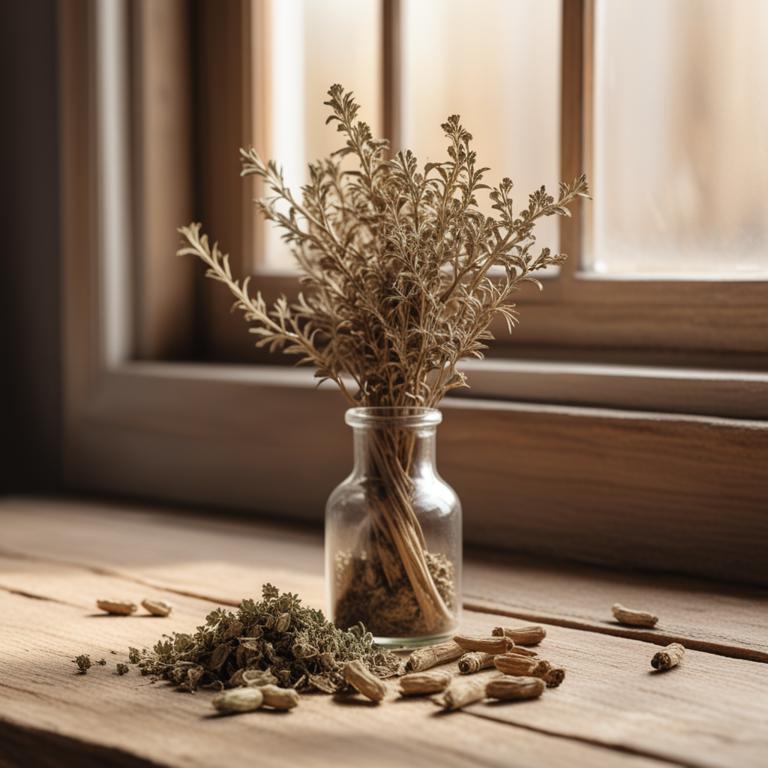
Herbs have been used for centuries to help with throat congestion, and for good reason.
Glycyrrhiza glabra, also known as licorice root, has anti-inflammatory properties that can help soothe a sore throat and reduce swelling. It's also been shown to have antimicrobial properties, which can help combat infections that can cause congestion. Eucalyptus globulus, or eucalyptus oil, is commonly used in cough drops and inhalers because of its decongestant properties.
It can help loosen mucus and make it easier to cough up. Echinacea purpurea is an herb that's often used to boost the immune system, which can help prevent infections that can cause congestion in the first place. Thymus vulgaris, or thyme, has antibacterial properties that can help combat infections and reduce inflammation. And finally, Zingiber officinale, or ginger, has anti-inflammatory properties that can help reduce swelling and pain in the throat.
These herbs work together to help alleviate symptoms of throat congestion, making them a great addition to your natural remedy toolkit.
What are the most commonly used herbal preparations for clearing throat congestion?
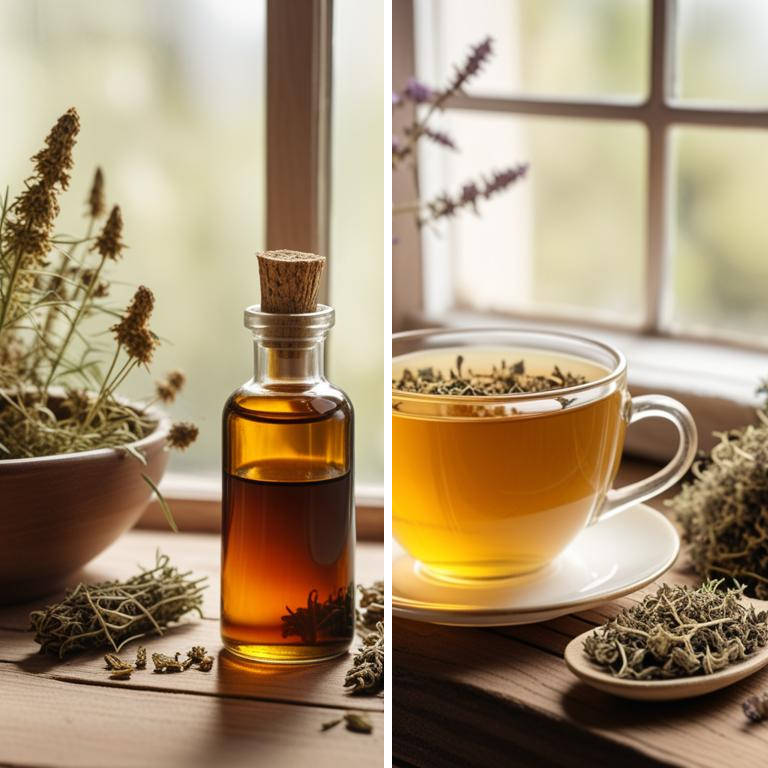
When you have a sore throat, herbal preparations can help ease the discomfort and congestion.
A decoction is a liquid made by simmering herbs in water, which helps to break down their active ingredients and release their healing properties. This makes decoctions particularly good for thick, stubborn congestion. You can make a decoction by simmering herbs like licorice root or slippery elm in water for 5-10 minutes. A tincture, on the other hand, is a concentrated liquid extract of herbs that you can take in small doses. Tinctures are good for throat congestion because they contain a high concentration of active ingredients that can quickly soothe a sore throat. You can take a tincture of herbs like echinacea or sage to help reduce inflammation and kill bacteria. An infusion is similar to a decoction, but it's made by steeping herbs in hot water for a shorter time, usually 5-10 minutes.
Infusions are good for throat congestion because they can help to calm a sore throat and reduce inflammation. You can make an infusion by steeping herbs like peppermint or chamomile in hot water. Gargling with a herbal preparation can also help to ease throat congestion. You can make a gargle by mixing a decoction or infusion with water and then gargling with it several times a day. This can help to kill bacteria and reduce inflammation in the throat. Finally, drinking herbal tea can help to soothe a sore throat and reduce congestion. Tea is similar to an infusion, but it's usually made with smaller amounts of herbs and can be more flavorful.
You can make a tea by steeping herbs like ginger or lemon balm in hot water, then straining and drinking it.
Additional Resources:
What herbs are not suitable for people experiencing throat congestion?
If you're dealing with throat congestion, it's best to be careful with certain herbs.
Rosmarinus officinalis, also known as rosemary, is a stimulant and can make your throat feel worse if you have an infection. It can also make it harder to swallow. Salvia officinalis, or sage, is another herb to use with caution. Its warming properties can irritate your throat and make congestion worse.
Lavandula angustifolia, or lavender, might seem calming, but its oils can dry out your throat and make it harder to clear mucus. Mentha x piperita, peppermint, is another herb to approach with care. Its menthol content can be too harsh for an already irritated throat. Foeniculum vulgare, or fennel, has a similar problem - its volatile oils can irritate your throat and make congestion worse.
These herbs might be okay in small amounts or in specific situations, but when you're already struggling with throat congestion, it's best to choose gentler options.
FAQ
Are there any specific herbs that can prevent throat congestion?
Ginger and thyme are often used to help ease throat congestion.
The active compounds in ginger have anti-inflammatory properties, which can reduce swelling in the throat. Thyme has antimicrobial properties that can help combat infections that cause congestion.
Drinking tea infused with these herbs may help soothe a sore throat and reduce congestion.
Is it safe to use herbal remedies for throat congestion during pregnancy?
When you're pregnant and dealing with throat congestion, some herbal remedies might be tempting to try.
However, it's essential to be cautious with any new treatments. Some herbs, like slippery elm and licorice root, are thought to be safe, but others, like pennyroyal and sage, may not be.
Always do your research before trying something new.
Are there any herbs that can reduce the frequency of throat congestion?
Eucalyptus and thyme are two herbs known to help ease throat congestion.
Eucalyptus has anti-inflammatory properties that can reduce swelling in the throat. Thyme contains compounds that help break down mucus, making it easier to cough up.
Drinking tea made from these herbs may help alleviate congestion.
Related Articles
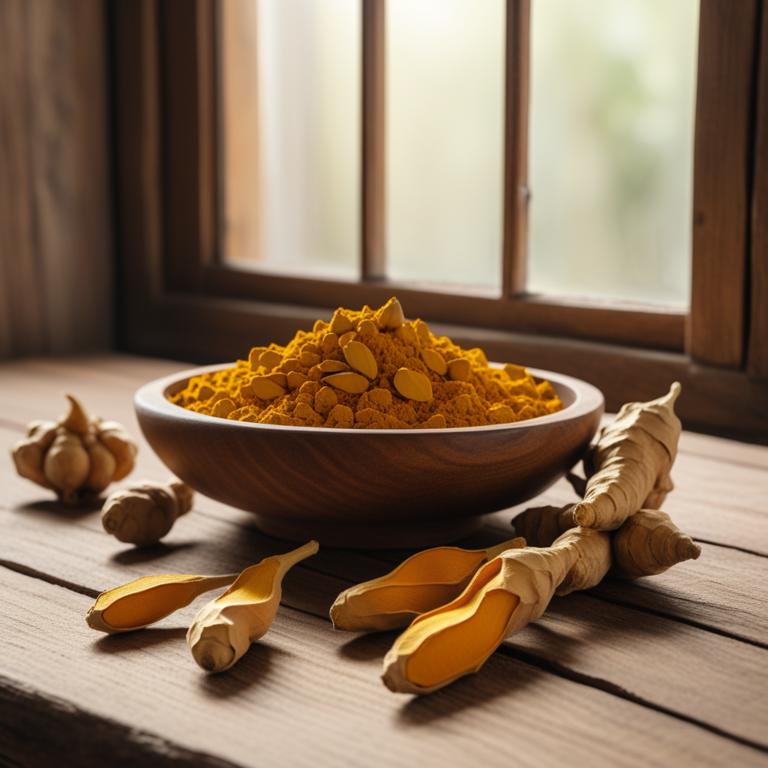
Emphysema Causes, Symptoms, and Herbal Relief Options
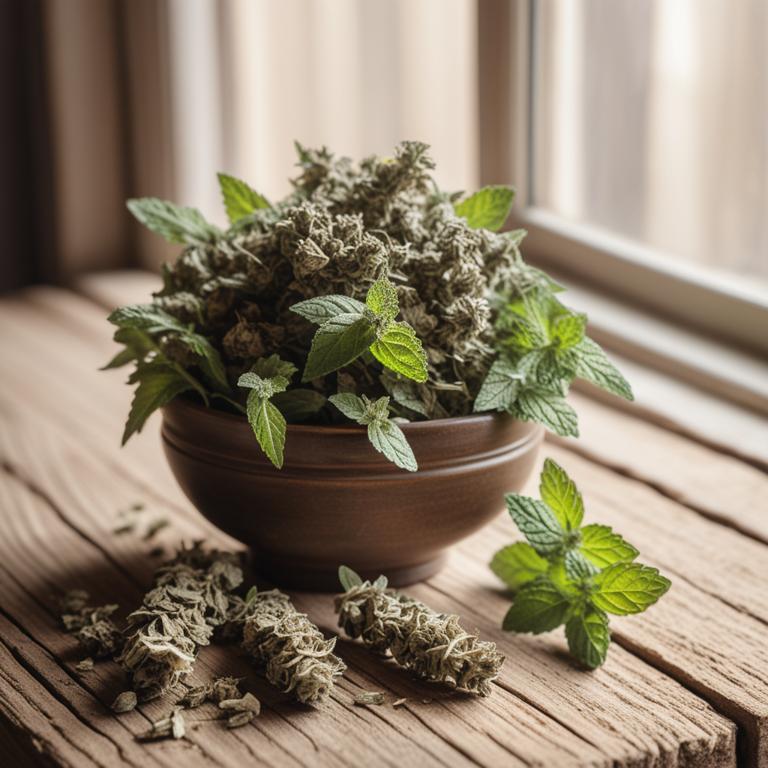
Blocked Nose: Causes, Prevention, and Medicinal Herbs for Relief

Throat Congestion: Understanding Causes and Medicinal Herbal Solutions

Chest Congestion: Understanding the Causes and Herbal Solutions
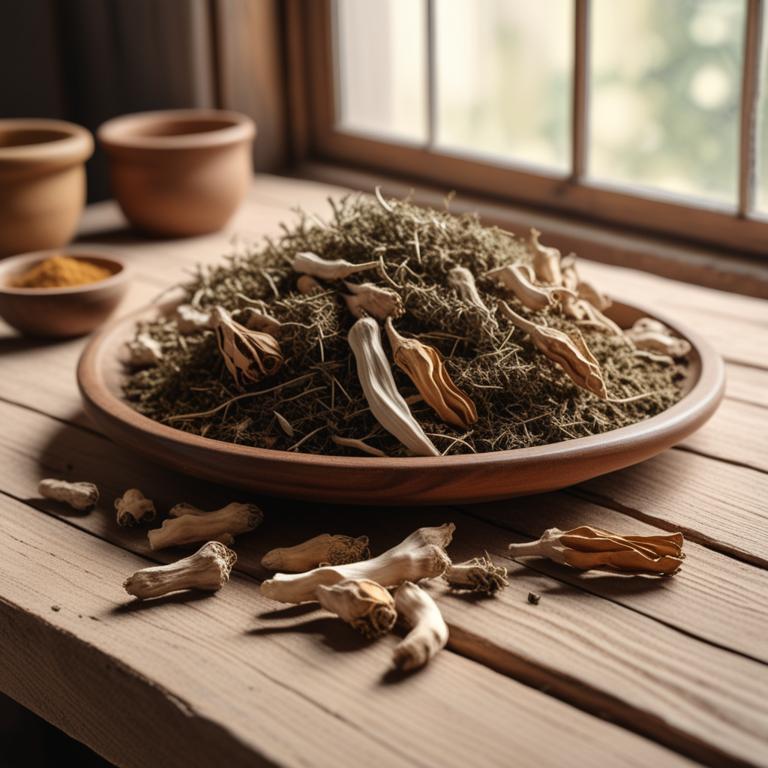
Natural Post Nasal Drip Relief with Medicinal Herbs and Herbal Preparations
